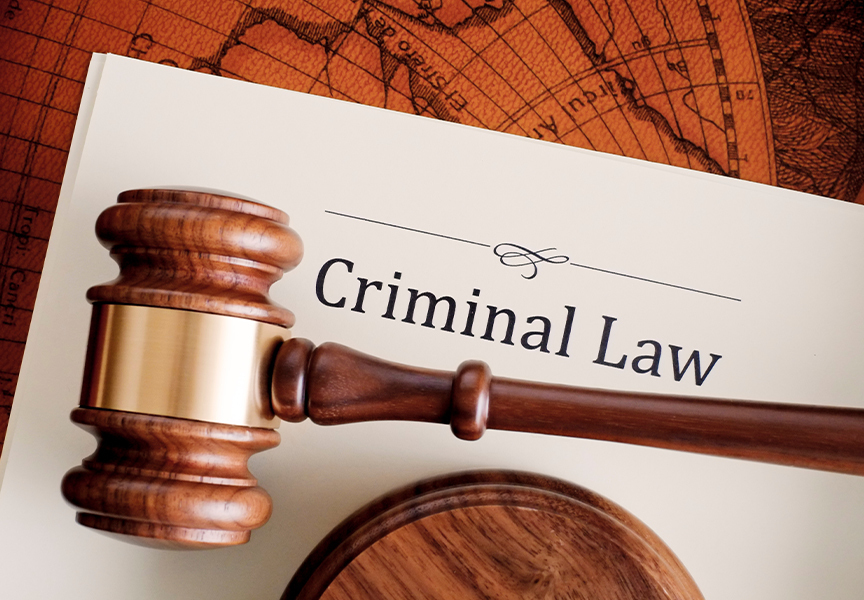Criminal defense attorneys operate in a high-pressure environment where the outcome of a case can have a profound impact on their clients’ lives. Their primary responsibility is to defend individuals accused of committing crimes, ensuring they receive a fair trial and optimal representation. This often involves confronting powerful prosecution teams and law enforcement agencies, which can be a daunting task.
In the realm of criminal defense, attorneys must be equipped to handle a diverse range of cases, spanning from minor misdemeanors to severe felonies. They must possess in-depth knowledge of criminal law and procedure, as well as the ability to navigate the intricacies of the legal system with expertise and precision. The stakes are high, and the pressure is relentless, but for those dedicated to upholding the rights of the accused, the rewards can be substantial.
Key Takeaways
- Criminal defense lawyers operate in a high-stakes world where the outcome of a case can have life-altering consequences for their clients.
- Ethical dilemmas are a constant challenge for criminal lawyers, who must balance their duty to defend their clients with their obligation to uphold the law and ethical standards.
- Navigating the legal system is a complex and intricate process that requires a deep understanding of the law and the ability to strategize effectively.
- Building trust and rapport with clients is essential for criminal lawyers, who often work with individuals facing some of the most difficult moments of their lives.
- Defending the accused can take an emotional toll on criminal lawyers, who must find ways to cope with the stress and pressure of their profession.
The Ethical Dilemmas Faced by Criminal Lawyers
The Moral Tightrope of Defense
Criminal defense lawyers must balance their duty to provide zealous representation for their clients with their own personal beliefs and values. This can be a challenging tightrope to walk, as they must reconcile their professional obligations with their own moral compass.
The Guilty Client Dilemma
One of the most common ethical dilemmas faced by criminal lawyers is whether to represent a client they believe to be guilty. While everyone is entitled to a defense, regardless of their guilt or innocence, some lawyers struggle with the idea of defending someone they believe to be guilty. This can create a moral conflict that is difficult to resolve, requiring introspection and soul-searching on the part of the lawyer.
Setting Aside Personal Beliefs
Ultimately, criminal defense lawyers must be able to set aside their personal beliefs and provide effective representation for their clients, even when it goes against their own moral compass. This requires a deep understanding of their professional obligations and a commitment to upholding the principles of justice.
Navigating the Legal System: Inside the World of Criminal Defense
Navigating the legal system is a complex and challenging task, and criminal defense lawyers must be well-versed in the intricacies of criminal law and procedure in order to effectively represent their clients. They must be able to navigate the complexities of the legal system with skill and precision, and they must be prepared to handle a wide range of cases, from minor misdemeanors to serious felonies. Criminal defense lawyers must also be adept at building strong cases for their clients, which often involves conducting thorough investigations, gathering evidence, and interviewing witnesses.
They must be able to anticipate the strategies of opposing counsel and develop effective counterarguments, and they must be prepared to argue their cases in court with confidence and conviction. Navigating the legal system is no easy feat, but for those who are passionate about defending the rights of the accused, it is a challenge that they are willing to take on.
Building Trust and Rapport with Clients: A Look at Criminal Lawyers’ Relationships
Building trust and rapport with clients is an essential aspect of the work of criminal defense lawyers. When individuals are facing criminal charges, they are often in a state of fear and uncertainty, and it is crucial for their lawyers to establish a strong relationship built on trust and understanding. Criminal defense lawyers must be able to communicate effectively with their clients, listen to their concerns, and provide them with reassurance and support throughout the legal process.
In order to build trust and rapport with their clients, criminal defense lawyers must be empathetic and compassionate, and they must be able to provide their clients with a sense of security and confidence in their abilities. They must be able to explain complex legal concepts in a way that is easily understandable, and they must be able to provide their clients with realistic expectations about the potential outcomes of their cases. Building trust and rapport with clients is not always easy, but for those who are dedicated to defending the rights of the accused, it is an essential aspect of their work.
The Emotional Toll of Defending the Accused: Insights from Criminal Lawyers
Defending individuals who have been accused of committing crimes can take a significant emotional toll on criminal defense lawyers. They are often exposed to harrowing stories of trauma and injustice, and they must bear witness to the suffering of their clients as they navigate the complexities of the legal system. This can lead to feelings of helplessness and frustration, as well as a sense of moral conflict as they grapple with the ethical dilemmas inherent in their work.
The emotional toll of defending the accused can also manifest in the form of burnout and compassion fatigue, as criminal defense lawyers are constantly exposed to high levels of stress and pressure. They must be able to compartmentalize their emotions in order to effectively represent their clients, but this can take a significant toll on their mental health and well-being. Despite these challenges, many criminal defense lawyers find fulfillment in their work, knowing that they are making a meaningful difference in the lives of their clients.
Strategies and Tactics: How Criminal Lawyers Fight for Justice
Building a Strong Case
They must be adept at building strong cases for their clients, which often involves conducting thorough investigations, gathering evidence, and interviewing witnesses. They must also be able to anticipate the strategies of opposing counsel and develop effective counterarguments, and they must be prepared to argue their cases in court with confidence and conviction.
Negotiation and Advocacy
In addition to building strong cases, criminal defense lawyers must also be skilled negotiators who are able to secure favorable plea deals or reduced charges on behalf of their clients. They must be able to effectively communicate with prosecutors and judges in order to advocate for the best possible outcomes for their clients.
Fighting for Justice
Fighting for justice on behalf of their clients requires skill, determination, and a deep understanding of criminal law and procedure. They must be able to think on their feet in order to adapt to changing circumstances in court, and they must be driven by a passion for justice and a commitment to protecting the rights of their clients.
The Hidden Challenges of Criminal Defense: A Closer Look at the Profession
While criminal defense lawyers play a crucial role in upholding the rights of the accused, they also face a number of hidden challenges that are not always apparent to those outside of the profession. They are often exposed to high levels of stress and pressure, as well as emotional tolls that can take a significant toll on their mental health and well-being. In addition, they must also contend with long hours, heavy workloads, and demanding clients who are often facing significant personal crises.
Criminal defense lawyers must also contend with societal stigma and negative perceptions about their work, which can make it difficult for them to find support and understanding from others. Despite these challenges, many criminal defense lawyers find fulfillment in their work, knowing that they are making a meaningful difference in the lives of their clients. They are passionate about defending the rights of the accused, and they are willing to take on the hidden challenges of their profession in order to ensure that justice is served.
FAQs
What is the role of a criminal lawyer?
A criminal lawyer is responsible for representing individuals or organizations who have been accused of committing a crime. They provide legal counsel, defend their clients in court, and negotiate plea deals on their behalf.
What are some common tasks of a criminal lawyer?
Some common tasks of a criminal lawyer include conducting legal research, interviewing witnesses, gathering evidence, preparing legal documents, negotiating with prosecutors, and representing clients in court.
What are the ethical obligations of a criminal lawyer?
Criminal lawyers are bound by ethical obligations to provide zealous representation for their clients, maintain client confidentiality, and uphold the principles of justice and fairness in the legal system.
What are some challenges faced by criminal lawyers?
Criminal lawyers often face challenges such as dealing with high-stakes cases, working with clients who may be facing severe consequences, navigating complex legal procedures, and managing the emotional toll of representing individuals accused of serious crimes.
How do criminal lawyers prepare for trials?
Criminal lawyers prepare for trials by conducting thorough investigations, analyzing evidence, developing legal strategies, preparing witnesses, and familiarizing themselves with relevant case law and courtroom procedures.


